Specific long term condition combinations have major role in NHS ‘winter pressures’
Powered by WPeMatico
Powered by WPeMatico
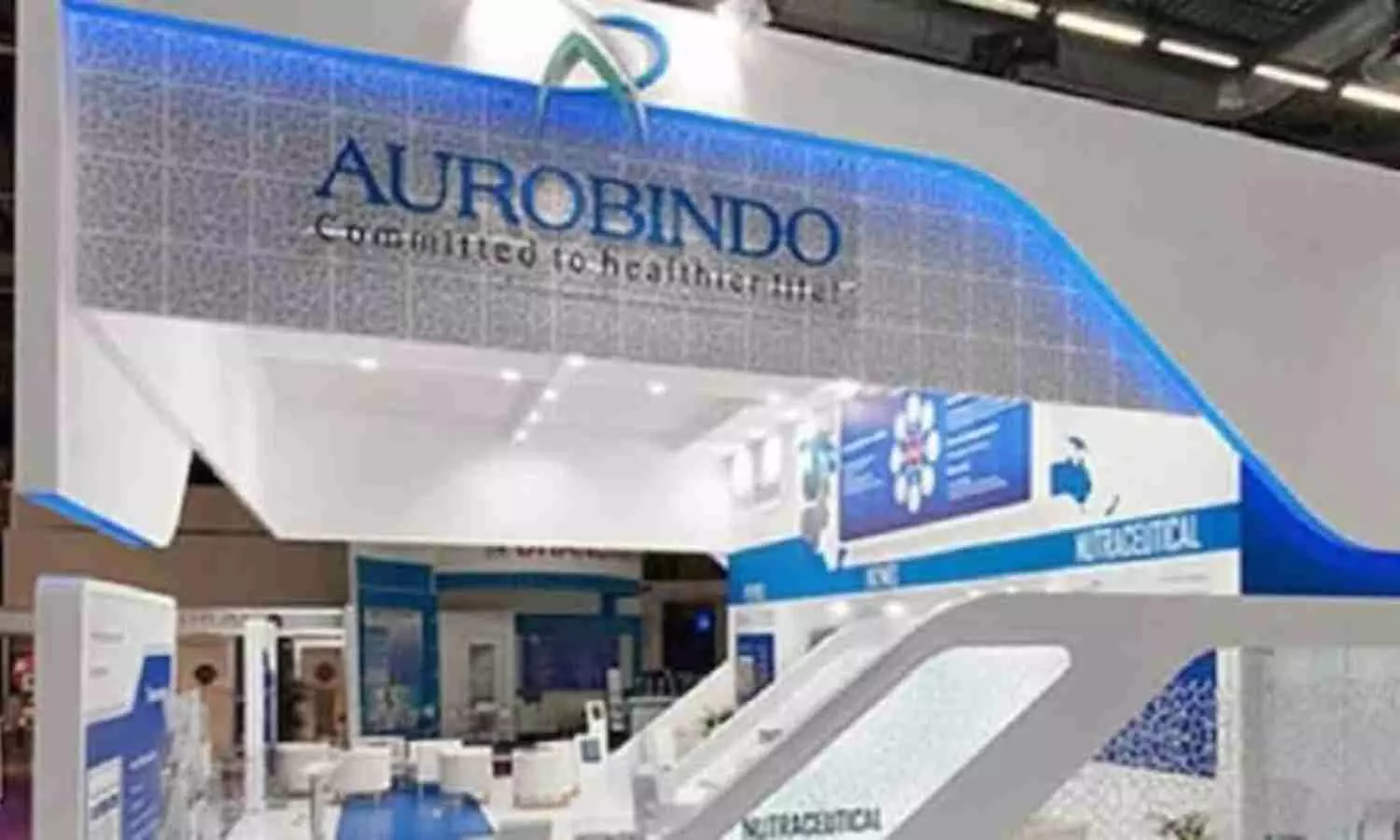
Hyderabad: CuraTeQ Biologics Private Limited, a wholly owned subsidiary of Aurobindo Pharma Limited, has received a
GMP certificate of compliance for its biosimilars manufacturing facility from the EMA. The GMP inspection,
conducted by EMA representatives from April 8th to April 12th, 2024, assessed mammalian and microbial drug
substance manufacturing facility sections, prefilled syringes and vials filling, packaging, and QC testing and
release laboratories
Dr. Satakarni Makkapati, Director of Aurobindo Pharma Limited and CEO of Biologics, Vaccines, and Peptides,
stated, “The EU GMP certification marks a significant milestone in CuraTeQ’s commitment to manufacturing
high-quality biosimilars for patients worldwide. This inspection outcome paves way for securing approvals for
our three biosimilars in Europe, currently under review by the Agency, within the next two to five months.”
K. Nithyananda Reddy, Vice-Chairman and Managing Director of Aurobindo Pharma Limited, added, “Our
portfolio comprises fourteen biosimilars in development across oncology and immunology segments. We are
dedicated to building a sustainable biosimilars portfolio and bringing these essential therapies to patients.”
Read also: Aurobindo Pharma arm announces successful Phase 1 clinical study outcome of their BP11 product
Read also: Aurobindo Pharma unit partners with MSD to foray into contract manufacturing operations
Powered by WPeMatico

Uttar Pradesh- The Director of Medical Education (DME) Uttar Pradesh has released the schedule of online counselling for the appointment of candidates of the National Eligibility and Entrance Test-Postgraduate (NEET PG) 2020 (MD / MS) Supplementary Batch and NEET PG 2021 Diploma Batch to the post of Senior Resident under compulsory government service bond.
As per the schedule, the entire process for the appointment of candidates of the NEET PG 2020 (MD / MS) Supplementary Batch and NEET PG 2021 Diploma Batch to the post of Senior Resident under compulsory government service bond will start from 14th November 2024 and will end on 26th November 2024.
The online registration and online record verification will start on 14th November 2024 and will conclude on 16th November 2024. Following this, the online choice filling will start from 16th to 18th November 2024. After the completion of the choice-filling process, the seat allotment result will declared on 18th November 2024. Lastly, candidates can download the allotment letter and submit the contribution report to the allotted college from 20th November 2024.
Below is the detailed schedule-
SCHEDULE
|
S.NO |
DESCRIPTION |
DATE |
TOTAL DAYS |
|
1 |
Date of online registration. |
14th November, 2024 (11:00 AM) to 16th November, 2024 (2:00 PM) |
03 days |
|
2 |
Date of online record verification |
14th November, 2024 (11:00 AM) to 16th November, 2024 (2:00 PM) |
03 days |
|
3 |
Date of online choice filling. |
16th November 2024 (5:00 PM) to 18th November 2024 (11:00 AM) |
02 days |
|
4 |
Date of declaration of seat allotment result |
18 to 19th November 2024 |
01 day |
|
5 |
Date for downloading allotment letter and submitting contribution report to the allotted college |
20th to 26th November 2024 |
07 days |
Meanwhile, it is to be noted that for online counselling, the candidates must register themselves by logging in to the UPDGME official website. If a candidate does not fill the option or does not participate in the counselling, then such candidates will be posted in any medical college/institute/medical university of the state in the public interest.
Along with this, UPDGME has also released certain important guidelines regarding the employment of candidates of NEET PG 2020 (Supplementary Batch) and NEET PG 2021 Diploma Batch under the Compulsory Government Service Bond.
Following are the important guidelines for employment of NEET PG 2020 (Supplementary Batch) and NEET PG 2021 Diploma Batch candidates through online counselling on the basis of their All India NEET Rank-
1 Seats will be allotted through online counselling based on the All India Rank, category and options of the candidates in relation to the vacant seats. The list of eligible candidates for counselling is available on the UPDGME official website.
2 The benefit of reservation will be payable only to the reserved category candidates of Uttar Pradesh state. The benefit of reservation will not be payable to the candidates from outside Uttar Pradesh state.
3 All certificates related to reservation will be valid only if issued by the competent authority and in the format prescribed by the Government of Uttar Pradesh. Reservation certificates in the format prescribed by the Government of India will not be valid.
4 The OBC category certificate dated 01.4.2024 or later will be valid only.
5 Choice filling of the candidates participating in online counselling will be auto-locked after the prescribed date and time.
To view the schedule, click the link below
To view the guidelines, click the link below
Powered by WPeMatico

Jodhpur: In a recent case of cyber fraud, a female doctor from All India Institute of Medical Sciences (AIIMS) Jodhpur became a target of a marriage proposal scam resulting in the loss of Rs 18 lakh after she was allegedly deceived by a man she met on a dating app, who falsely claimed to be a cardiologist from the Netherlands.
According to the complainant, the fake doctor duped her with the promise of marriage. The doctor was deceived out of her money after the accused requested money for shipping charges related to medical equipment that he bought in Istanbul and hotel bills, assuring her that he would repay her soon.
Also read- How a Thane Doctor Fell Victim to Medical Equipment Contract Scam, Losing Rs 3.84 Crore
As per an ETV Bharat news report, the incident began on October 15 after the duo met on a dating app and started having a conversation. Soon, the friendship turned serious leading to a discussion about marriage.
The elaborate scam started on October 22 when the fake doctor told her that he was in Istanbul, buying medical equipment, and needed money to cover shipping and hotel costs. He promised to repay her soon and provided two bank account details in the names of Arvind Yadav, located in Rae Bareli and Indore. Trusting his story, the doctor transferred around Rs 9 lakhs.
A few days later, on October 28, the accused claimed to have sent her 30,000 euros on her SBI bank account assuring her it would soon appear in her account. When she asked for the money she had sent, she received a call and an email purportedly from the RBI, demanding an additional 9,35,000 rupees for the process of converting the 30,000 euros into Indian currency.
With help from a colleague, she paid the amount which was transferred to accounts under the names Houliang Thang at Union Bank and Punjab & Sindh. However, even after sending the money, she did not receive the promised funds made by the accused fake doctor.
Following this, she attempted to contact the doctor but failed which made her realise that she was scammed. Afterwards, she approached the police and filed a complaint against the fraudster under relevant sections of BNS.
Also read- Rajkot doctor put under digital arrest for 2 days, duped of Rs 22.82 lakh
Powered by WPeMatico

Telangana- Kaloji Narayana Rao University of Health Sciences (KNRUHS) is inviting online application forms from the National Eligibility and Entrance Test-Postgraduate (NEET PG) qualified candidates from Indian Nationals / OCI / NRIs for admission into Post Graduate Medical Degree / Diploma courses under Management Quota seats for 2024-25 into Private Non-Minority and Minority Medical Colleges affiliated to KNRUHS in the state of Telangana.
In this regard, KNRUHS has issued a notification regarding the online registration for web-based counselling to determine the State Merit position for admission into Management Quota seats only.
As per the notification, the NEET PG 2024 qualified and eligible candidates who desire to take admission into PG Medical Degree/Diploma Courses shall apply online and upload all original certificates for determining the Merit position for Telangana State Management quota seats using NEET PG 2024 ranks in the Website till 17 November 2024.
The online application can be filled through any computer with an Internet connection. The Registration and Verification fee of Rs.6300/- shall be paid online through Debit card / Credit card or Net Banking. Registration and Verification fee once paid will not be refunded or adjusted to a further date. Candidates who completed MBBS from other states must pay an Equivalency verification fee for certificate verification apart from the registration fee. The fee for an MBBS Degree from another state or other country is Rs. 5,000 & Rs. 7,000 respectively.
Meanwhile, the provisional Merit list will be notified after scrutiny of all certificates uploaded at the time of online registration. However, the provisional Final Merit position of the applied candidates will be prepared based on the NEET-PG 2024 Score and other eligibility criteria notified hereunder after verification of uploaded certificates. In addition, the total number of seats available under Management Quota for the academic year 2024-25 will also be notified on the website before exercising web options for counselling.
PROCEDURE OF FILLING OUT THE APPLICATION, SCANNING/UPLOADING OF ORIGINAL CERTIFICATES AND ONLINE PAYMENT FOR REGISTRATION
1 The Registration and Verification fee can be paid through a Debit card / Credit card or NetBanking.
2 The Registration and Verification fee paid by the applicants is not refundable under any circumstances.
3 The following documents are required for Uploading-
i Latest passport-size photo.
ii Admit card and Score Card – NEET – PG2024.
iii Original/Provisional Degree Certificate.
iv Aadhar Card.
v Study Certificate(s) from first to final MBBS.
vi Latest Category certificate in case of BC/SC/ST candidates issued by Competent Authority of Government of Telangana if applicable ( for NEET Cutoff score under category as there are no reservations for Management Quota seats).
vi Muslim Minority Certificate issued by the Competent Authority of Government if applicable.
vii Internship completion certificate
xi Valid Medical Council Registration Certificate. (If issued before June 2019 shall be renewed).
x Permanent Medical Council Registration Certificate.
xi candidates claiming NRI quota (MQ2) Should submit the following documents from a Blood relative such as Father/Mother/Brother/Sister/Uncle/Aunt only and should submit a declaration to that effect-
a NRI Sponsorship certificate (DECLARATION Form).
b NRI status certificate of the financial supporter issued by the embassy of the respective country under their seal.
c Copy of NRI Bank account passbook of the financial supporter.
d Copy of Passport of NRI financial supporter.
xii Sponsorship Certificate from College for Institutional Quota (MQ3).
PROCEDURE FOR SUBMISSION OF FILLED-IN-ONLINE APPLICATION FORM AND ORIGINAL CERTIFICATES FOR PG MEDICAL DEGREE/DIPLOMA COURSES
The candidate should submit the print-out of the filled-in Online application form and original certificates along with One (1) set of self-attested copies to the Principal of the allotted college at the time of joining for final verification. In case of any discrepancy, the provisional allotment order will be cancelled.
MANAGEMENT QUOTA SEATS
1 The PG Degree / Diploma seats available under Management Quota in Private un-aided Non- Minority /Minority Medical Colleges will be displayed on the KNRUHS website before Online Counseling.
2 Final seat matrix for Management Quota sub-category – MQ.-1, MQ.2, MQ-3 will be displayed on the KNRUHS official website before online counselling.
ELIGIBILITY
1 Candidate should have qualified in NEET PG-2024 by securing marks of cutoff score or above as displayed above.
2 Candidate should have passed the MBBS Degree examination from an Institution recognized by the Medical Council of India.
3 Candidates who have completed their MBBS course from an institution outside the country shall submit a permanent registration certificate compulsorily.
Along with this, the e candidates should have completed the internship by 31-08-2024.
CUTT OFF SCORE IN NEET PG 2024 EXAM
|
S.NO |
CATEGORY |
QUALIFYING CRITERIA |
|
1 |
General Category (UR/EWS) |
50th Percentile |
|
2 |
SC/ST/OBC (including PWD of SC/ST) |
40th Percentile |
|
3 |
Persons with Disability ( OC) PWD |
45th percentile |
It is to be noted that the lower percentage/percentile of marks for SC/ST/BC/OBC /PWD is only for eligibility purposes and will not be applicable for reservations as there are no reservations under Management Quota.
IMPORTANT POINTS
1 On-online application form without uploading mandatory Certificates, Passport size photo, without signature at declaration area, incomplete applications will be automatically rejected and will not be considered for determining the Merit position in respective categories using NEET-PG-2024 Rank.
2 The mere fact that the Merit position issued to the candidate does not imply that the candidature is accepted by the University and it does not mean that the entries made by the candidate in the online application are accepted as true and correct.
3 Candidates may please note that the University will take up the verification of certificates with regard to eligibility conditions i.e., Educational qualifications, validity of Registration with NMC/MCI/State Medical Council, Internship certificate, Category status as per uploaded relevant certificates by the University
4 If the information furnished by the candidate in the application is incorrect, his/her candidature is liable to be cancelled and further action that deems fit will be taken
5 Candidate eligibility for admission into PG courses for the academic year 2024-25 will be examined by the University only after scrutiny of the application along with all copies of required certificates and the provisional final merit list will be notified.
6 Registration along with uploading of Scanned Original certificates will be done only once irrespective of the number of times of exercising web options / Number of counselling. No separate notification will be given for verification of original certificates. Therefore, the candidates should register and upload all the mandatory Certificates without fail.
7 Scrutiny of uploaded Original Certificates shall be done by the University and concerned departmental officials. After scrutiny of the application and certificates provisional final merit list will be released. Candidates are advised to refer to the KNRUHS website for further details regarding the schedule of exercising web options.
8 Admissions will be in accordance with the Orders issued from time to time by the State Government with regard to the process of Admissions to Post Graduate Medical Courses under Management Quota and relevant Hon’ble Court orders.
9 The procedure for preparation of seat matrix and selection into PG MD/MS broad speciality in the Management Quota and seat allocation will be done as the procedure.
10 The notification is for determining the State Merit position in respective categories using NEET- PG – 2024 Rank only. The dates for exercising web options for admission to PG (MD/MS/Diploma) courses and procedures will be notified separately on the University website. Candidates are advised to check the University website for notifications, schedules and other details from time to time.
11 An in-eligible candidate obtaining a Merit position does not make the candidate eligible for admission.
12 Admissions will be considered only for candidates, who have secured marks above the cutoff score in the NEET- PG-2024 exam and based on the state merit order as the case may be
To view the notification, click the link below
Powered by WPeMatico
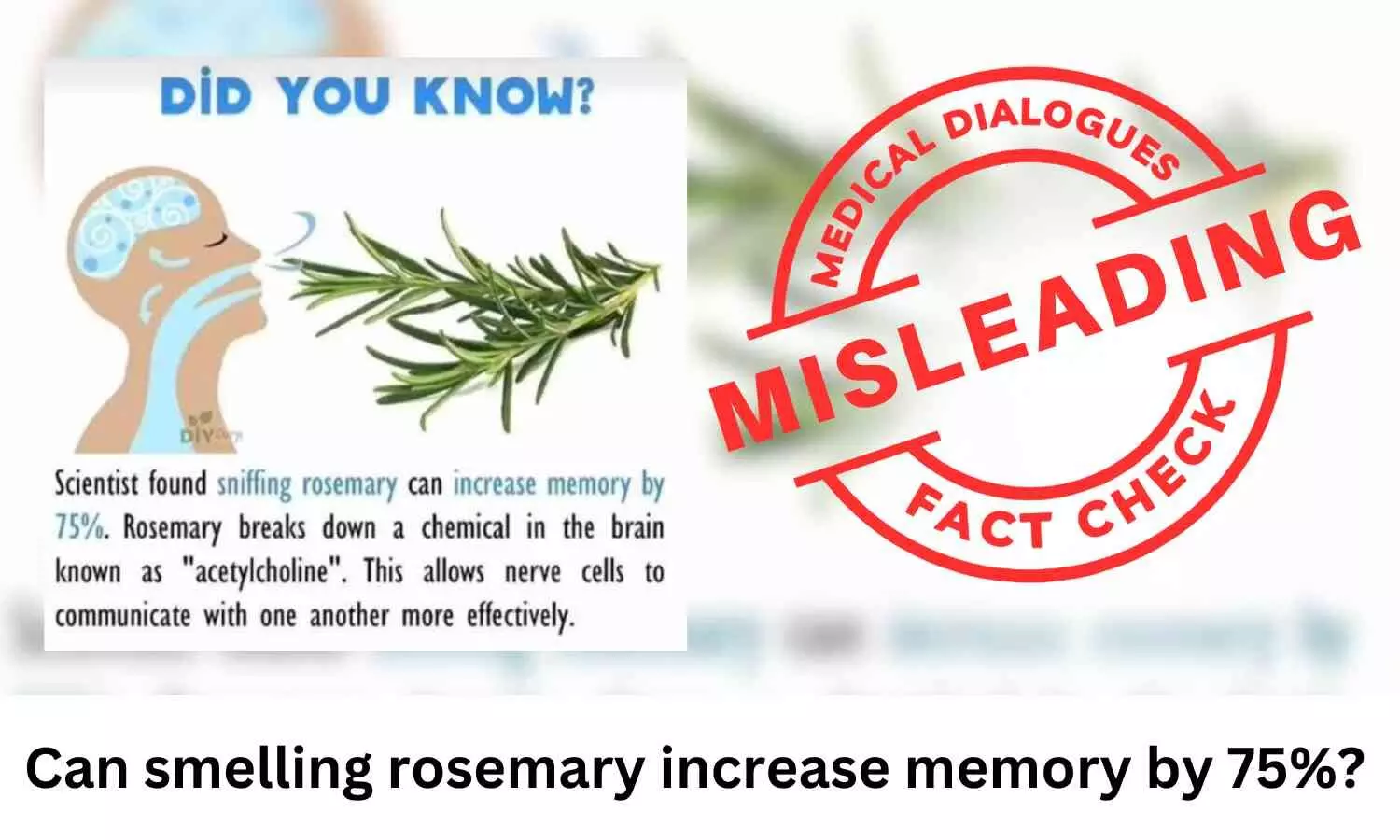
A Pinterest post claims that rosemary can increase memory by 75%. It is a Misleading claim.
A Pinterest post claims that rosemary can increase memory by 75%. The post by Melissa Kunaschk states, “Scientists found sniffing rosemary can increase memory by 75%. Rosemary breaks down a chemical in the brain known as acetylcholine.” This allows nerve cells to communicate with one another more effectively.” The post can be accessed here.
The post by a Pinterest user is Misleading. There is scientific evidence that supports that Rosemary can help with cognitive function, but smelling it cannot increase memory by 75% as claimed by the use
Memory can be defined as the faculty through which organisms encode, store, and retrieve information, allowing them to utilize past experiences and knowledge to inform present and future actions. It is a dynamic, multi-faceted process involving biochemical, neural, and systemic levels. Memory can manifest in different forms, including sensory, short-term, and long-term storage, each with unique attributes and functions.
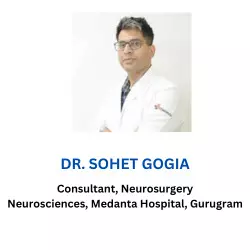
The Medical Dialogues Fact Check Team spoke with Dr. Sohet Gogia, Consultant, Neurosurgery, Medanta Hospital, Gurugram and he explained, “Memory can be improved through targeted lifestyle modifications. Regular physical activity boosts blood flow to the brain, promoting cognitive health. A balanced diet rich in antioxidants, omega-3 fatty acids, and essential vitamins supports brain function. Prioritizing adequate sleep helps consolidate memories and reduce cognitive decline. Stress management techniques, such as mindfulness and meditation, contribute to mental clarity. Additionally, mental exercises like puzzles, learning new skills, and using mnemonic devices enhance memory retention and recall. While genetics set a baseline for memory capacity, these proactive steps can significantly improve cognitive function and memory over time.”
Rosemary (Rosmarinus officinalis L.), widely used in various cuisines and spice blends, offers notable health benefits due to its unique composition. It exhibits antimicrobial properties effective against bacteria, fungi (including yeast), and viruses. Rosemary also supports carbohydrate and lipid metabolism, enhances nervous system function, and has hepatoprotective effects. The plant, along with its extracts and essential oils, is utilized in cooking, cosmetics, and the food industry.
Rosemary has shown notable cognitive benefits, such as improved memory quality, secondary memory, numerical recall, and enhanced brain neurotransmitter activity. However, it is important to note that there is no scientific evidence or medical consensus to support the claim that smelling rosemary can increase memory by 75%.
An article published in the Egyptian Journal of Basic and Applied Sciences found that participants exposed to rosemary essential oil showed a notable improvement in both image and numeric memory.
There is indeed evidence that inhalation of rosemary can be helpful in improving cognitive functions. A study published in the Alexandria Journal of Medicine found that inhaling rosemary essential oil significantly enhanced participants’ ability to memorize numbers. This suggests that rosemary aromatherapy may positively influence numerical memory retention.
Mahboobeh Ghasemzadeh Rahbardar et. al. reported in a study that rosemary essential oil modulates brain neurotransmitter activity and exhibits neurophysiological effects by promoting the synthesis and release of acetylcholine, as well as inducing neuronal differentiation in mice.
A randomized controlled trial conducted by Andrew Pengelly et. al. indicates that low doses of rosemary may aid cognitive function in older adults, highlighting the need for further investigation into the long-term benefits of such doses. The authors also noted on the contrary that higher doses were linked to reduced cognitive performance.
A research article published in the International Journal of Neuroscience revealed that rosemary significantly enhanced overall memory quality and secondary memory factors but impaired memory speed compared to the comparison group.
Rosemary has exhibited cognitive benefits, such as improved memory and enhanced brain activity, though higher doses could negatively impact performance. Additionally, there is no scientific evidence to support the claim made by the Pinterest user that smelling rosemary can increase memory by 75%.
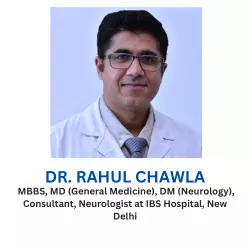
Responding to the claim Dr. Rahul Chawla, MBBS, MD (General Medicine), DM (Neurology), Consultant, Neurologist at IBS Hospital, New Delhi said “Claims that smelling rosemary can enhance memory by as much as 75% are overstated and there are no scientific studies to support such claims. While the scent of rosemary has been linked to slight improvements in memory and cognitive function, the effects are modest at best. Such figures often stem from misinterpretations of research data. People need to be aware that while natural remedies like rosemary may have potential cognitive benefits, they are not substitutes for established practices like mental exercises, proper nutrition, and sleep for memory enhancement.”
Dr. Sohet Gogia, Consultant, Neurosurgery, Medanta Hospital, Gurugram further added “While the idea that smelling rosemary can boost memory by 75% sounds impressive, it’s actually misleading. Some studies do suggest that the scent of rosemary might offer a small boost to cognitive performance, but where this figure of 75% came from is a mystery—it doesn’t show up in any credible scientific research. The truth is, any benefits are usually much smaller and can differ from person to person. It’s important to take such claims with a grain of salt. Rosemary might help a bit, but it’s definitely not a magic fix for improving memory.”
Rosemary has shown potential cognitive benefits, such as improved memory, secondary memory, and numerical recall, while enhancing brain neurotransmitter activity, supporting acetylcholine synthesis and release, and promoting neuronal differentiation. Inhaltion of rosemary has indeed shown improvement in cognitive function. However, there is no conclusive scientific evidence or medical consensus to support the claim that smelling rosemary can increase memory by 75%.
Hence, the claim is Misleading.
Powered by WPeMatico
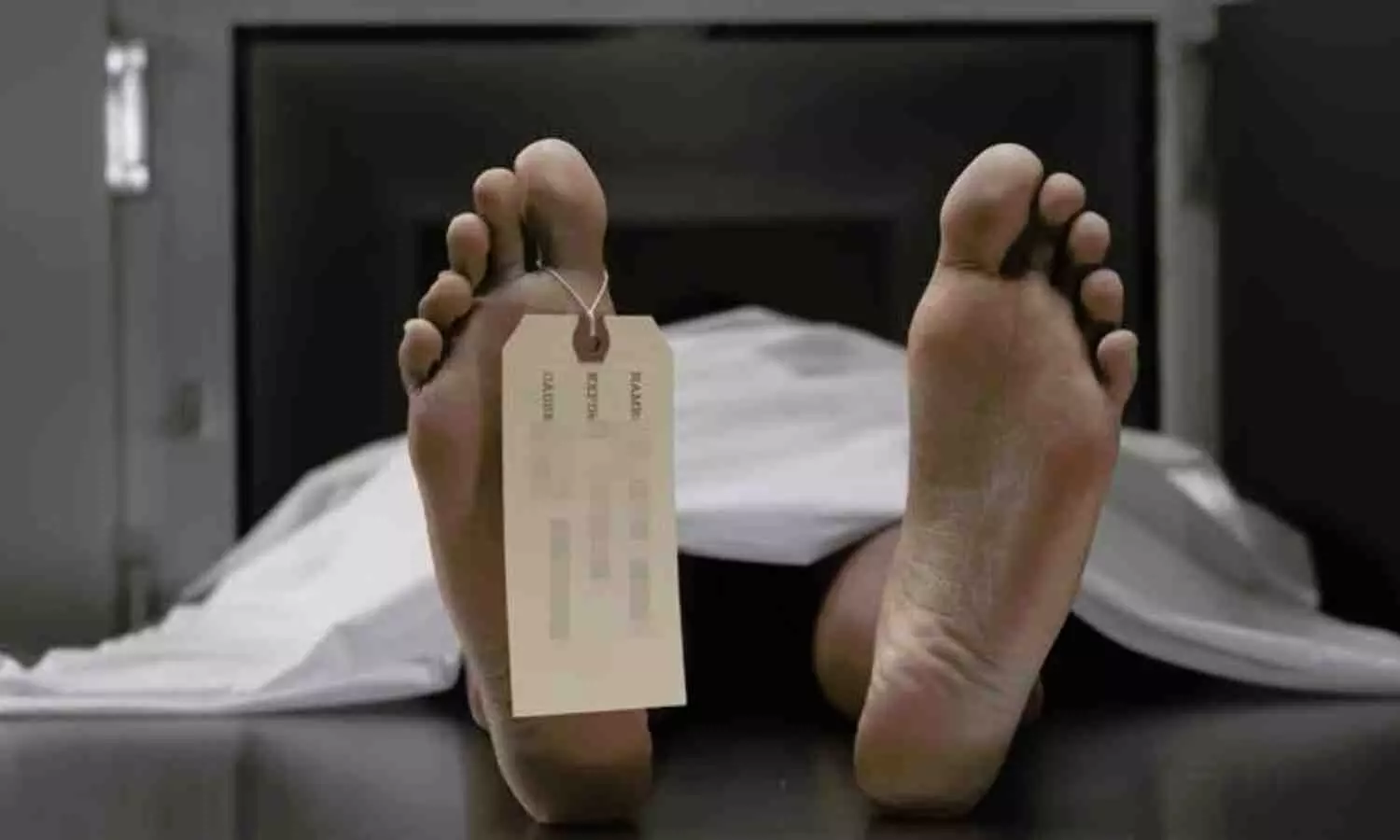
New Delhi: Chaos erupted at Guru Teg Bahadur Hospital after angry relatives of a patient created a ruckus outside the hospital, alleging medical negligence after their family member had died four days later after being admitted to the hospital.
According to the police, the patient had been missing since November 4 and was found intoxicated lying on a footpath near a road in Shahdara. Afterwards, he was taken to the GTB hospital for treatment. However, he could not survive and died on Sunday.
Also read- Doctor, Nurse booked over cannula insertion pricks, as patient alleges they were drunk
Upon getting the information of the patient’s death, his family members accused the hospital of medical negligence, gathered outside the hospital and briefly created a ruckus prompting a police intervention to restore calm.
Speaking to TNIE, DCP (Shahdara) Prashant Gautam said, “A call was received on November 6 regarding a man, who had a tattoo of ‘Azeem’ on his right forearm, lying on a footpath near Tahirpur in an inebriated state. The man was immediately admitted to Guru Teg Bahadur Hospital. His family members were searched, but no clues were found.”
“After three days of searching, we finally tracked down the man’s family members on November 9 and informed them. It was found they had lodged a missing complaint at Nand Nagri police station. The family of the patient said he had left home on November 4. When he failed to return, they approached the police. The parents informed us that their son was an alcoholic and had previously been admitted to a drug addiction centre,” added the DCP.
Also read- UP doctor booked for culpable homicide after 12-year-old dies during treatment
Powered by WPeMatico

Chennai: The Government of Tamil Nadu has announced a major expansion of healthcare infrastructure aimed at strengthening emergency and diagnostic services across the state. From FY 2021-22, the Government of Tamil Nadu has issued orders for establishment of 28 Critical Care Bocks (CCBs) and 20 District Integrated Public Health Laboratories (DIPHLs). These projects are at various stages of constructions.
Powered by WPeMatico

GLP-1 receptor agonists and SGLT2 inhibitors, two classes of medications most commonly prescribed to treat Type 2 diabetes or weight loss, may reduce the risk of heart attack, second strokes and death in adults who had an initial stroke, according to a preliminary study to be presented at the American Heart Association’s Scientific Sessions 2024. The meeting, Nov. 16-18, 2024, in Chicago, is a premier global exchange of the latest scientific advancements, research and evidence-based clinical practice updates in cardiovascular science.
“Unfortunately, a quarter of people who survive a stroke will have another stroke, and they are also at risk for other cardiovascular events such as a heart attack since many of the risk factors of a stroke are also associated with other forms of heart disease,” said lead study author M. Ali Sheffeh, M.D., an internal medicine physician and research scholar at the Mayo Clinic in Rochester, Minnesota. “Managing these risks, as well as looking at novel approaches to help lower the chances of another stroke, heart attack or death among this population are all critical steps in increasing stroke survival and improving the quality of life for people who have had a stroke.”
In this study, Sheffeh and colleagues evaluated whether two classes of medications for treating Type 2 diabetes are associated with a decreased risk of heart attacks, secondary stroke or death in stroke survivors.
One of the classes of medications – glucagon-like peptide-1 receptor agonists (GLP-1) – treats Type 2 diabetes by stimulating insulin release by the pancreas, delaying gastric emptying, and decreasing the release of glucagon, a hormone in the body that raises blood sugar.
The GLP-1 medications liraglutide and semaglutide, as well as the dual GLP-1 and glucose-independent insulinotropic polypeptide (GIP) tirzepatide, are approved by the U.S. Food & Drug Administration for weight loss and to reduce the risk of cardiovascular disease for people with obesity or overweight.
The other medication class, sodium-glucose cotransporter 2 inhibitors (SGLT2), lowers blood sugar levels by inducing the kidneys to remove excess glucose from the body through the urine. The SGLT2 medications canagliflozin, dapagliflozin, empagliflozin and ertugliflozin are approved by the FDA for the treatment of Type 2 diabetes.
To analyze the impact of these two classes of medications, this study reviewed medical records for more than 7,000 adults who had clot-caused, or ischemic, strokes between January 2000 and June 2022. All participants had received stroke care at hospitals within multiple health systems in Minnesota or Wisconsin. Researchers assessed outcomes for people who were prescribed either a GLP-1 or an SGLT2 medication after their initial stroke to determine if there was a potential impact on the risk of having a second stroke, a heart attack or dying.
After an average follow-up of three years, the analysis found:
Adults who were taking either a GLP-1 or an SGLT2 had a 74% lower risk of death and an 84% lower risk of having a heart attack.
Adults who were taking an SGLT2 were also at a 67% lower risk of having another stroke.
All decreased risks noted were present even when researchers accounted for other factors that may have affected or increased some patients’ risk. These included age, sex, smoking status, hypertension status, Type 2 diabetes status, peripheral artery disease, hyperlipidemia, chronic kidney disease and a history of heart attack or a history of heart failure.
Within the entire study period, the death rate among stroke survivors who took either a GLP-1 or an SGLT2 was 11.8%, compared to 54% among patients who did not take either class of medication. The rate of heart attacks among patients receiving either medication was also 1.5%, compared to 6.1% among patients not taking either class of medication.
The rate of having another stroke was similar between patients who did and did not receive either medication, at approximately 6%.
“When comparing multiple variables, we can still conclude that treatment with either medication was associated with lower risk of recurrent stroke even though the rate was similar between patients who did and did not receive either medication,” Sheffeh said. He noted that the medications significantly lowered the risk of recurrent stroke in an analysis that compared multiple variables, including patients’ risk factors for recurrent stroke—age, sex, hypertension status, Type 2 diabetes status, peripheral artery disease and a history of heart attack or a history of heart failure. However, the risk of recurrent stroke was not significantly lower in an analysis comparing medication use with recurrent stroke and no additional variables.
“The potential protective effects of the medications were hidden because those in the treatment group may have more high-risk features than the patients who were not taking either medication, hiding any protective effect. What the multivariate adjusting does is account for those differences and tease out any independent effect,” Sheffeh said. “The results of the study are consistent with other research about the preventive role of these medications against cardiovascular disease in people with obesity or heart failure.”
Powered by WPeMatico
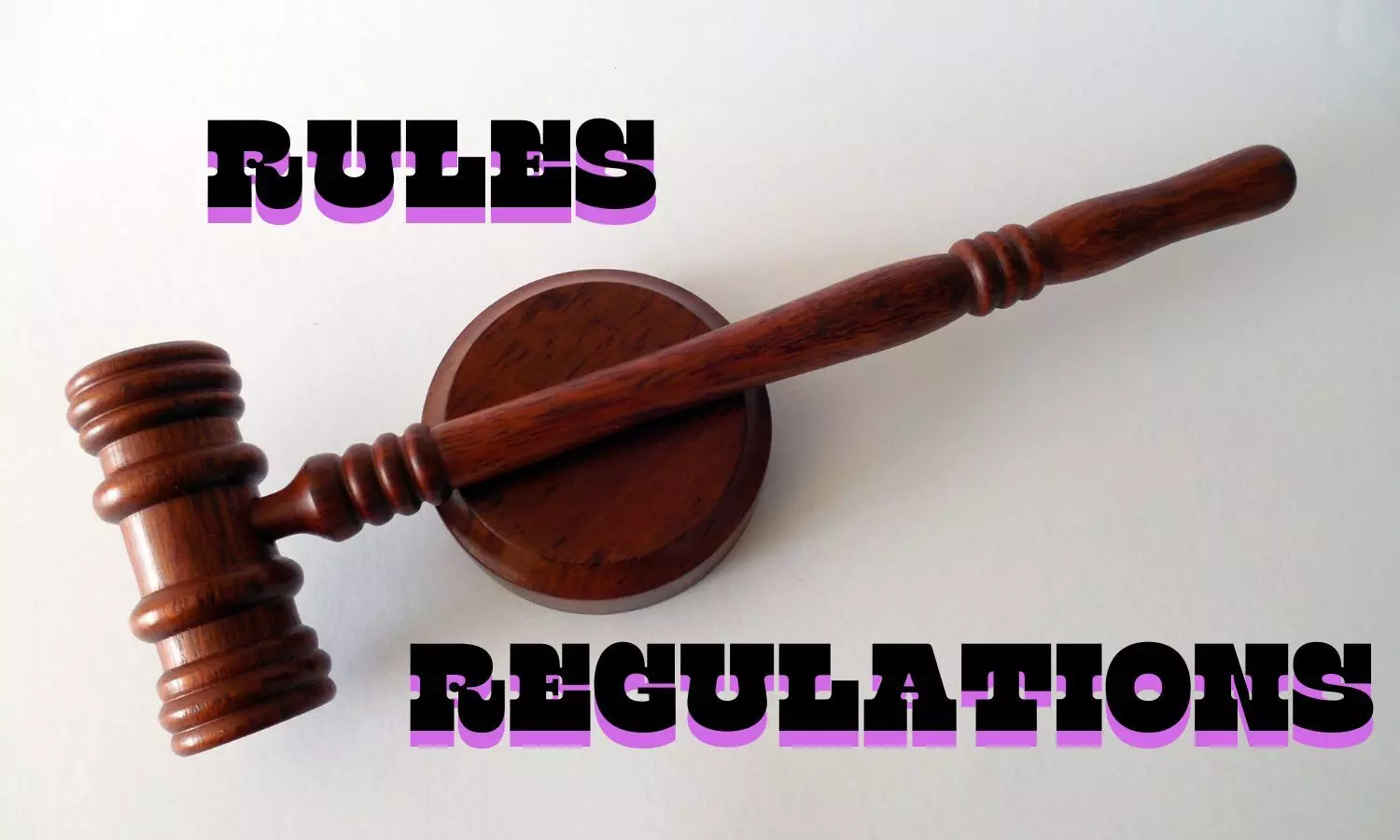
New Delhi: Through a recent Gazette notification, the Ministry of Health and Family Welfare has issued recruitment rules for various key positions in the Central Drugs Standard Control Organisation (CDSCO), under the Directorate General of Health Services.
These positions include Additional Drugs Controller, Joint Drugs Controller, Deputy Drugs Controller, Assistant Drugs Controller, and Drugs Inspector (Medical Devices), all categorized as Group ‘A’ and ‘B’ posts.
The rules, titled Ministry of Health and Family Welfare, Directorate General of Health Services, Central Drugs Standard Control Organisation, Medical Device Vertical (Group ‘A’ and ‘B’ Posts), Recruitment Rules, 2024, will come into effect from the date of their publication in the Official Gazette, ie. November 6, 2024.
The notification outlines the number of posts, their classification, and the corresponding pay levels as detailed in the annexed schedule. It also specifies the recruitment methods, age limits, qualifications, and other requirements for these positions. One key provision of the rules addresses disqualifications, stating that individuals who have entered into or contracted a marriage while their spouse is still living, or who are already married and enter into another marriage, will be ineligible for appointment. However, exemptions may be granted by the Central Government if the marriage is permitted under personal law and there are other valid grounds for doing so.
Additionally, the rules state that individuals already holding the positions of Assistant Drugs Controller or Drugs Inspector (Medical Devices) on a regular basis before the implementation of these rules will be deemed to have been appointed under these new rules. Their prior service will be recognized for purposes of seniority, probation, confirmation, and promotion within the service.
The Central Government has been granted the authority to relax any of the provisions of these rules, if necessary, for certain categories of people, after consulting with the Union Public Service Commission. Lastly, the rules ensure that reservations, age-limit relaxations, and other concessions for Scheduled Castes, Scheduled Tribes, Other Backward Classes, ex-servicemen, and other special categories of persons will remain in place as per the existing government orders.
Here are the details of the rules regulating the method of recruitment to the posts of:
1. Additional Drugs Controller (I)
The Additional Drugs Controller (I) is a Group ‘A’ Gazetted, Non-Ministerial position within the General Central Service, with a pay scale at Level 13A (Rs. 131100-216600) in the pay matrix. It is a selection post without age restrictions for direct recruitment, and qualifications for direct recruits do not apply to promotees.
Recruitment is primarily by promotion, with deputation as a secondary method if needed. Promotion requires two years of regular service at the Joint Drugs Controller (I) level (Level 13) and completion of mandatory training. Deputation candidates must hold an analogous post or have two years of service at Level 13, with either a Master’s degree and 14 years or a Bachelor’s degree and 16 years of relevant experience in fields like Biomedical Engineering, Pharmacy, or Life Sciences. A Ph.D. is desirable.
Deputation is limited to a maximum of three years, and applicants must be under 56 years of age at the application closing date. The Departmental Promotion Committee, which includes a UPSC representative, oversees promotions, though UPSC consultation is not required for other recruitment aspects.
2. Joint Drugs Controller (I)
The Joint Drugs Controller (I) position is classified as Group ‘A’, Gazetted, Non-Ministerial under the General Central Service, with a pay scale at Level 13 (Rs. 123100-215900). It is a selection post, and recruitment is mainly through promotion, with deputation (including short-term contracts) as an alternative.
For promotion, candidates must have five years of regular service as Deputy Drugs Controller (I) in Level 12 (Rs. 78800-209200) and complete mandatory training. For deputation, candidates must have either an analogous post or five years of service at Level 12, along with a Master’s or Bachelor’s degree in relevant fields and experience in medical device regulation or manufacturing.
Deputationists cannot be considered for promotion, and the maximum age for deputation is 56 years. The Departmental Promotion Committee consists of senior officials, but consultation with the Union Public Service Commission is not required for this recruitment.
3. Deputy Drugs Controller (I)
The Deputy Drugs Controller (I) position is classified under the General Central Service as Group ‘A’, Gazetted, Non-Ministerial, with a pay level of 12 (Rs. 78800-209200). It is a selection post, and recruitment is primarily through promotion, with deputation (including short-term contracts) as an alternative. Promotion is possible for Assistant Drugs Controllers (I) in Level 11 (Rs. 67700-208700) with five years of service and completion of mandatory training.
For deputation, candidates must have five years of regular service at Level 11 and possess a Master’s or Bachelor’s degree in relevant fields, along with the required experience in medical device regulation or manufacturing.
Deputationist cannot be considered for promotion, and the maximum age for deputation is 56 years. The Departmental Promotion Committee comprises senior officials, and consultation with the Union Public Service Commission is not required.
4. Assistant Drugs Controller (I)
The Assistant Drugs Controller (I) position is a Group ‘A’, Gazetted, Non-Ministerial role with a Level-11 pay scale (Rs. 67700-208700). The age limit for direct recruits is up to 40 years, with a five-year relaxation for government servants.
Educational qualifications include a Master’s degree in a relevant field and four years of experience, or a Bachelor’s degree with six years of experience in medical device manufacturing, testing, or regulation. Recruitment is 50% through direct recruitment and 50% through promotion or deputation. Promotion is for Drugs Inspectors with eight years of service, while deputation is for officers with varying years of service in lower levels (8, 9, or 10).
The maximum age for deputation is 56 years, and the deputation period should not exceed four years. The Departmental Promotion Committee includes senior officials from the Ministry of Health and the Central Drugs Standard and Control Organisation. The Union Public Service Commission is consulted for direct recruitment and promotion.
5. Drugs Inspector (Medical Devices)
The Drugs Inspector (Medical Devices) position is a Group ‘B’, Gazetted, Non-Ministerial role with a Level-8 pay scale (Rs. 47600-151100). The age limit for direct recruits is up to 30 years, with a five-year relaxation for government servants. The required educational qualifications include a Bachelor’s degree in Engineering (Biomedical, Chemical, Mechanical, etc.) or Pharmacy, Pharmaceutical Sciences, Microbiology, or Life Sciences from a recognized university.
Recruitment is 50% through direct recruitment and 50% through promotion or deputation. Promotion is for Assistant Drugs Inspectors (Medical Devices) with six years of service and mandatory training. Deputation is available for officers with relevant experience and educational qualifications from the Central or State Governments, Public Sector Undertakings, or other recognized institutions.
The maximum age for deputation is 56 years, and the deputation period should not exceed three years. The Departmental Promotion Committee includes senior officials from the Ministry of Health and Drugs Controller (India). Consultation with the Union Public Service Commission is required for direct recruitment.
However, industry body, AiMED has raised objection to the new notification. Speaking to Medical Dialogues, Rajiv Nath, Forum Coordinator, AiMeD said, “The govt had earlier appointed 23 Drugs Inspectors from engineering background but to our knowledge till end of 2023 not appointed them as Medical Devices Officers. Instead the Government redesignated 236 Drugs Inspector from pharmacy background as Medical Officers without adequate competency development that’s been leading to hardship of medical devices manufacturers as their factories are being scrutinised by Drugs Background experts . It’s like seeking airforce cadets to be qualified by naval or army instructors. It’s imperative for the growth of the medical devices industry to be unshackled from the Drugs Regulatory regime and have a separate regulatory division independent of Drugs as is the case of FSSAI manned by competent and trained staff – without pharmacists with bias of drugs based regulations. The separation had started by the Separate medical devices rules and last year the Parliament Committee on Health recommended in its report 138 and re- asserted in its report 146 of the need for India to have a separate regulatory framework and regulator for medical device considering the vast difference in diverse technologies and risk management approach for engineered medical devices that are not chemistry based pharmaceuticals and we recommend that these regulations need to as per best international practices.”
“We regret that this notification was passed without consulting the Industry or being tabled to Medical Devices Technical Advisory Group as now Pharmacy background regulators will be happy with the recent announcement as they feel now they will be promoted also to Medical Devices vertical as post have been made ADC I DDC I JDC I as these have not specifically restricted qualifications for Medical Devices vertical as being relevant engineering and science based as desired for medical devices and current CDSCO and SLA are already dominated with Pharmacists background regulators,” Nath further expressed.
To view the official notification, click on the link below:
Powered by WPeMatico
